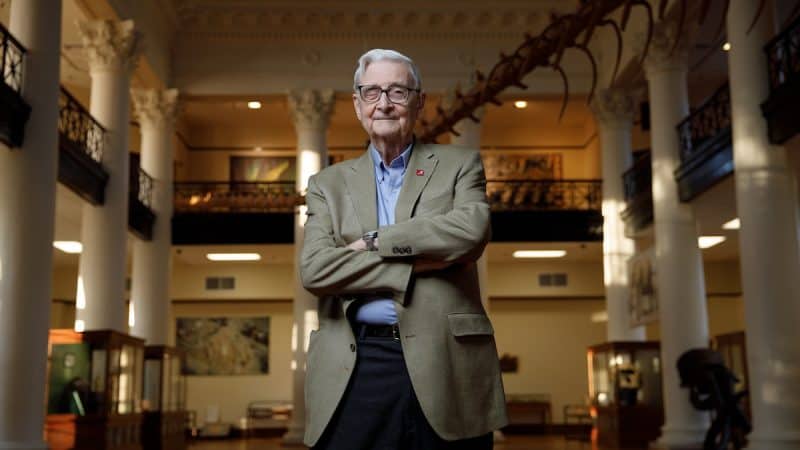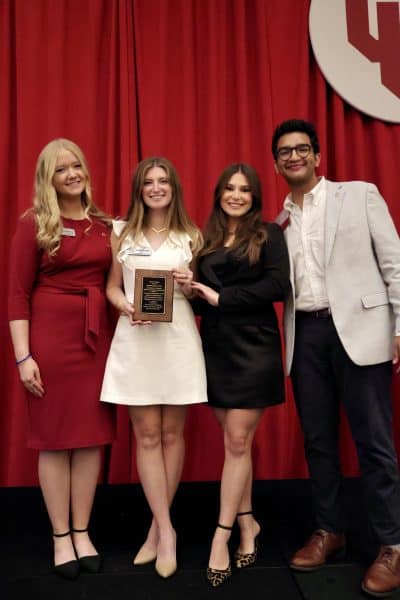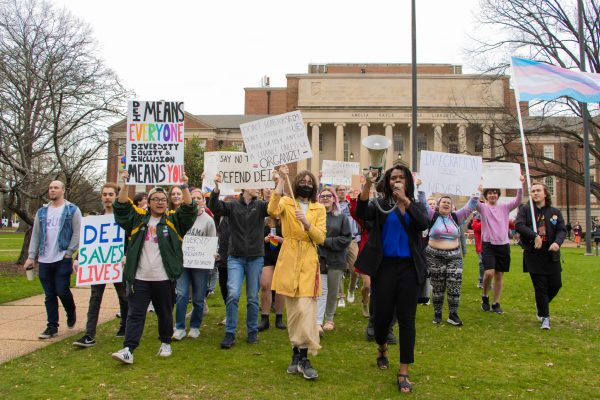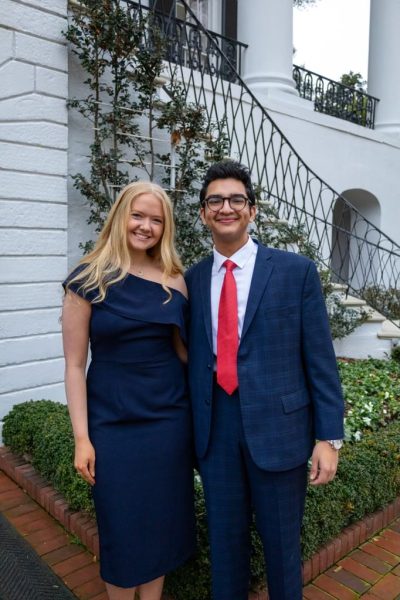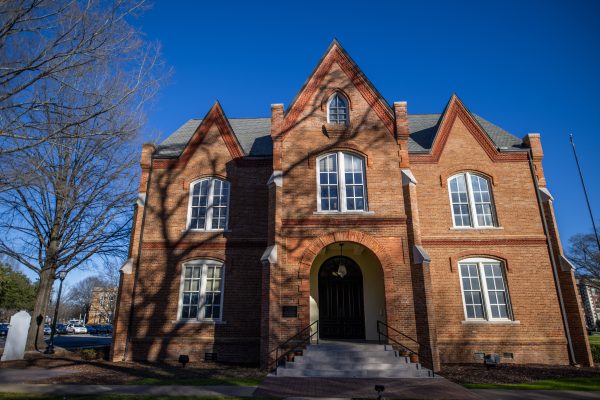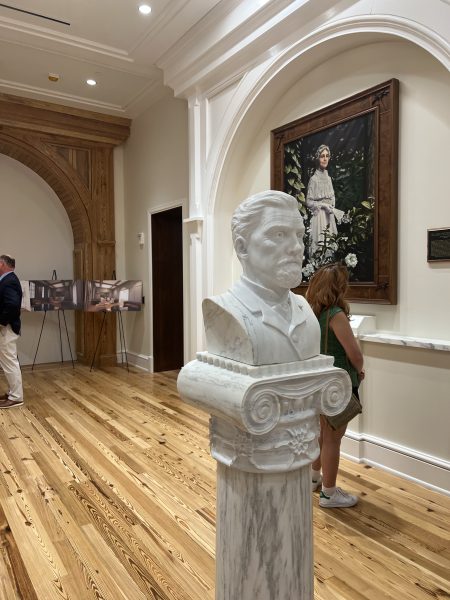E.O. Wilson, UA alum and ‘father of sociobiology,’ dies at 92
December 27, 2021
Edward Osborne Wilson, a two-time UA alumnus known as the father of sociobiology, died Dec. 26 at the age of 92.
Wilson was named one of the 25 most influential personalities by Time in 1995, and in 2008 he was named one of the 100 most important scientists in history by the Britannica Guide.
“Through a relentless pursuit of new knowledge, our friend E.O. Wilson taught us to view the natural world in fresh and inspiring ways,” UA President Stuart Bell said. “His legendary work will continue to encourage future generations of students who are passionate about science and innovation.”
Claire Lewis Evans, a senior acquisitions editor at The University of Alabama Press, wrote in a tweet that Wilson was “a tremendous supporter of our natural history list,” serving as an advisory editor for a series of nature guides and authoring valuable forewords and introductions to books.
Wilson was known as “Darwin’s natural heir” and “the ant man,” according to the E.O. Wilson Biodiversity Foundation. He was a leading expert in myrmecology, or the study of ants. While living in Mobile, Alabama, he identified an invasive fire ant species, which he later studied in detail as a student at The University of Alabama.
“I believe I was the first to find that ant in the U.S.,” Wilson said in a 2014 interview with American Entomologist. “Certainly the first to study it in any detail.”
Later, during his tenure at Harvard University, Wilson proposed that human behavior has a genetic basis in “Sociobiology: The New Synthesis.” The work was controversial at the time and challenged the view that culture and environment determine human behavior. He argued in his book that human behavior is shaped by genetics as much as — if not more than — it is by culture.
“Sociobiology” was controversial among critics, including Wilson’s colleagues, who equated the field of sociobiology with sexism, racism and Nazism, and argued that it contributed to social injustice. He later said genes determine “maybe 10%” of human behavior and denied the critics’ accusations.
“It would be hard to understate Ed’s scientific achievements, but his impact extends to every facet of society. He was a true visionary with a unique ability to inspire and galvanize. He articulated, perhaps better than anyone, what it means to be human,” said David J. Prend, chairman of the board of the E.O. Wilson Biodiversity Foundation.
The two-time Pulitzer Prize-winning author was recognized for “On Human Nature” in 1979, and again in 1991 for “The Ants.”
He coined the phrase scientific humanism, a philosophy that embraces human reason, secular ethics and philosophical naturalism. In 2003, he was one of the signers of the Humanist Manifesto.
Wilson was a pioneer in efforts to preserve and protect the biodiversity of this planet, according to his foundation.
“E.O. Wilson taught us so much about the importance of preserving our rich biodiversity, and perhaps more significant today, how cooperation, not conflict, has enabled humanity to survive and thrive,” Bill Clinton wrote in a tweet. “His later books left us a roadmap for the future. I was honored to know him.”

